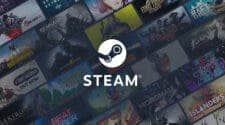Recently, Valve made a small but important change on Steam. Now, when you add a game to your cart, there’s a note clearly stating that you’re not actually buying ownership of the game. Instead, you’re purchasing a license to use it. This came after the State of California passed a law requiring digital stores to be more transparent about how digital goods are sold.
In response, GOG (Good Old Games) took the chance to highlight how it stands apart from other platforms. Unlike Steam or Epic Games, GOG lets you truly own the games you buy. This simple yet significant difference sets GOG apart in today’s digital marketplace.
The Games You Buy Should Be Yours Forever, Right?
One of GOG’s standout features, and something that more gamers should be excited about, is its commitment to DRM-free games. When you buy a game on GOG, you’re not just purchasing the right to play it through an online platform. Instead, you’re getting the full game, with no strings attached. GOG provides an offline installer that you can download and keep. Even if the game’s license expires or the store shuts down, you still have full access to play your game.
Since checkout banners are trending, we're thinking of putting one up ourselves. Thoughts on this one? pic.twitter.com/d3y66PrL7Q
— GOG.COM (@GOGcom) October 11, 2024
This uncouples the game from the platform, giving you actual ownership. To use these installers indefinitely, it’s smart to back them up, either on local storage or in the cloud. While these files can be quite large, storage is relatively affordable these days. The key takeaway? With GOG, you have the choice and the freedom to store and access your games however you like.
More Publishers Should Consider Putting Their Games on GOG
Does GOG have as many games as Steam or Epic Games Store? No, it doesn’t. But it’s the only platform that genuinely cares about game preservation in the digital age. That alone makes it worth supporting. If you’re buying a game like Baldur’s Gate 3, it’s available on GOG, and with an offline installer, you can rest easy knowing it won’t disappear.

The issue of digital ownership isn’t new, and it came up again recently with Ubisoft and Sony. Ubisoft shut down The Crew, leaving players with no offline access, effectively killing the game forever. Sony, on the other hand, planned to remove purchased digital video content from users’ libraries, though they later reversed the decision.

Neither Steam nor Epic Games offer the true ownership that GOG does. It is the one platform that truly understands how important it is to preserve games. More publishers should be putting their games on it, and more gamers should consider buying from there. It’s one of the few places that still gets it right.





